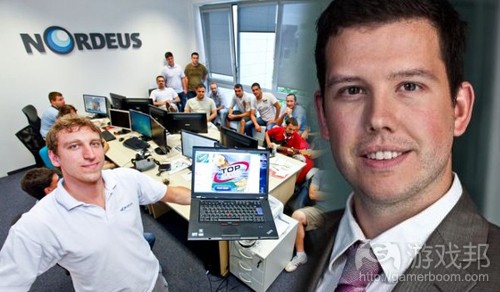略过美国市场也能够获取全球性的成功
作者:Matthew Diener
随着手机游戏的发展,Nordeus一直都是特立独行,其业务开发主管Nikola Cavic在GDC Next的演讲中解释了原因。
Cavic说道:“你可以通过忽视主要市场并专注于剩下的世界而获取全球性的成功。我们便做到了这点,其它开发者也能够做到,包括你。”
Nordeus在推广旗下游戏《Top Eleven》时便忽视了美国市场。这款游戏获得了1100多万的月活跃用户,位列104个国家的前五名收益榜单内,并彻底改变了传统的成功模式。
它是通过瞄准非传统市场而取得这些成功。
面向全球市场进行思考与行动
推动Nordeus去考虑新兴市场而不是像美国这样的主要市场的关键元素便是每安装成本。
Cavic补充道:“在美国,英国,德国,法国和意大利等主要市场中,CPI至少会达到1.5美元,但是成本却不断增加。通常情况下面对每个用户需要付出2至5美元。”
他继续说道:“但是在像西班牙,巴西,中国和沙特阿拉伯等第二市场中,CPI却不到1.5美元。有一半的世界甚至不在主要市场和第二市场地图上,所以那里的CPI甚至还低于第二市场所需要的成本。”
说到为什么Nordeus避开了美国市场(CPI更高)时,Cavic表示,“比起带有更高终身价值的少部分用户,带有较低终身价值的大多数用户能够为我们带来更多利益。”
这与手机领域中许多公司所采取的方法相反,他声称:“每个开发者都渴望在美国获取成功并挤进前100名的排行内,所以他们都会选择面向美国市场创造游戏并以那为基点进行扩展。”
他总结道:“但事实上,大多数开发者却不知道如何面对剩下的世界。在美国尤为如此,因为其国内市场已经非常巨大了。”
收益递减
Cavic从不认为美国的每付费用户平均收益高于土耳其。
但是Nordeus发现来自美国玩家的收益(游戏邦注:只比泰国和土耳其等新兴市场多出2倍)与其较高的每安装成本是不成比例的—-即美国的每安装成本比其它国家高出了6,7倍。
在着眼于全球市场对这些情况做出总结时,Cavic并未拐弯抹角。
“如果你想要获得全球性的成功,你怎么敢忽视大半个世界市场?我想你不会这么做的。”
本土化
当然了,面对这些新兴市场的关键在于确保你的游戏真正面向那些目标玩家。
“努力创造出与目标区域相关的内容。如此玩家便会意识到你的努力并走向你的作品,并最终忠实于你。”
玩家忠实度是推动《Top Eleven》在Facebook上取得成功的一大因素。Cavic说道:“这里没有‘邀请好友’的垃圾邮件。玩家将根据自己的意愿邀请好友而推动游戏的有机发展。”
如今《Top Eleven》已经拥有40种语言的版本,其中更是有13种带有支持文件(很快便会扩展到20种),所以我们可以与世界各地的玩家进行交流了。
尽管并不是所有开发者拥有如此扩展本土化项目的资源,但是Cavic建议道:“本土化你的应用描述,只需要短短的一个小时你便能够提高50%的下载率。”
(本文为游戏邦/gamerboom.com编译,拒绝任何不保留版权的转载,如需转载请联系:游戏邦)
Nordeus: You can skip the US and still achieve global success
by Matthew Diener
Nordeus is an anomaly as mobile games go, and its head of business development Nikola Cavic spelled out exactly why in a talk at GDC Next.
“You can achieve global success by ignoring the primary markets and focusing on the rest of the world,” said Cavic, speaking on stage at the LA event. “We’ve done it, other developers can do it, and so can you.”
Nordeus ‘ignored’ the United States with its primary push for Top Eleven, hit over 11 million monthly active users, ranked in the top 5 for revenue in 104 countries, and has blown the doors off the typical success model.
And it managed all of this by targeting nontraditional markets.
Think globally, act globally
The main factor that drove Nordeus to consider emerging markets over primary markets like the US was the cost per install.
“In primary markets – the US, UK, Germany, France, and Italy – the CPI is at the very least $1.50, but the costs have escalated. It’s not uncommon to pay $2-5 per users,” added Cavic.
“But in secondary markets like Spain, Brazil, China, and Saudi Arabia, it’s less than $1.50 CPI,” he continued Cavic, noting that “half the world isn’t even on the map [of primary and secondary markets], and the CPI there is well below even the costs of the secondary markets.”
Speaking as why Nordeus chose not to focus on the US – where the CPI is much higher – Cavic concluded simply that there’s “more benefit in having more customers with a lower lifetime value than a smaller pool of customers with a higher LTV.”
This is contrary to the approach that many in mobile have, where, he claimed, “every developer’s dream is to succeed in the US and crack the top 100, so they’ll create games for the US market and expand from there.”
He concluded: “The reality is, most of the developers don’t have a strategy for the rest of the world. This is especially true in the US, since the domestic market is so large”.
Diminishing Returns
Cavic never argued that the average revenue per paying user is higher in the United States was higher than it was in, say, Turkey.
But the returns Nordeus saw from US players – only two times higher than emerging markets like Thailand and Turkey – were wildly incommensurate with the higher cost per install, which is in the neighborhood of 6 or 7 times higher in the US.
Concluding his advice to those looking to go global in a big way, Cavic didn’t mince words.
“Can you afford to ignore half of the global market if you want to achieve global success? I don’t think you can.”
Talk to me
Of course, key to speaking to these emerging markets is making sure that your game actually speaks to the players that it’s localised for.
“Make some effort to have content that’s relevant to the localised region. Customers will recognise that you made the effort to reach out to them, and they’ll be more loyal as a result.”
And this customer loyalty is part of what’s driven the success of Top Eleven from its Facebook days onward. “There was no ‘invite friends’ spam”, noted Cavic. “Players were driving the growth in an organic way by inviting friends on their own.”
Top Eleven is currently available in 40 languages with support documentation available in 13 (which will soon expand to 20), so it’s in a position to speak to players across the world.
While not every developer has the resources for extensive localisation projects like these, Cavic wrapped up his thoughts with a bit of advice.
“Just localising the description of your app, which takes one hour of work, can lead to 50 percent higher download rates.”(source:pocketgamer)








































 闽公网安备35020302001549号
闽公网安备35020302001549号